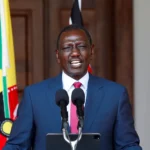Nigeria’s foreign exchange reserves have experienced a decline, dropping by approximately $342.97 million over nine days.
As of August 15, 2024, the reserves stood at $36.53 billion, marking a 0.93% decrease from the $36.87 billion recorded on August 7, 2024.
This is according to the most recent data available from the Central Bank of Nigeria (CBN) on reserves.
The downward trend precedes the Nigerian government’s plans to issue a $500 million domestic dollar bond, aimed at bolstering the reserves and stabilizing the foreign exchange market.
The bond, scheduled for issuance, seeks to attract both local and foreign investors, providing a much-needed boost to the country’s external reserves.
On August 15, 2024, external reserves reached $36.53 billion, a 0.26% decrease from the previous day and a cumulative decrease of 0.93%, following a four-month growth period.
The reserves had previously experienced a growth period of about $4 billion over the four months, but the recent decline highlights the ongoing challenges faced by Nigeria’s financial authorities in maintaining reserve levels. These challenges include meeting import demands, managing debt obligations, and ensuring liquidity for the naira’s stability.
The $500 million domestic dollar bond is expected to play a crucial role in enhancing external reserves, stabilizing the foreign exchange situation, and ultimately supporting economic growth.
According to the Minister of Finance, Wale Edun, this historic issuance will provide essential foreign exchange liquidity, boost reserves, and help stabilize the exchange rate, manage inflation, and lower interest rates.
The bond issuance is part of a strategic move to channel funds into sectors that will catalyze economic growth in the.
With a minimum investment of $10,000, the government hopes to raise $1 billion through this bond auction, marking a significant step towards achieving economic stability and growth.










